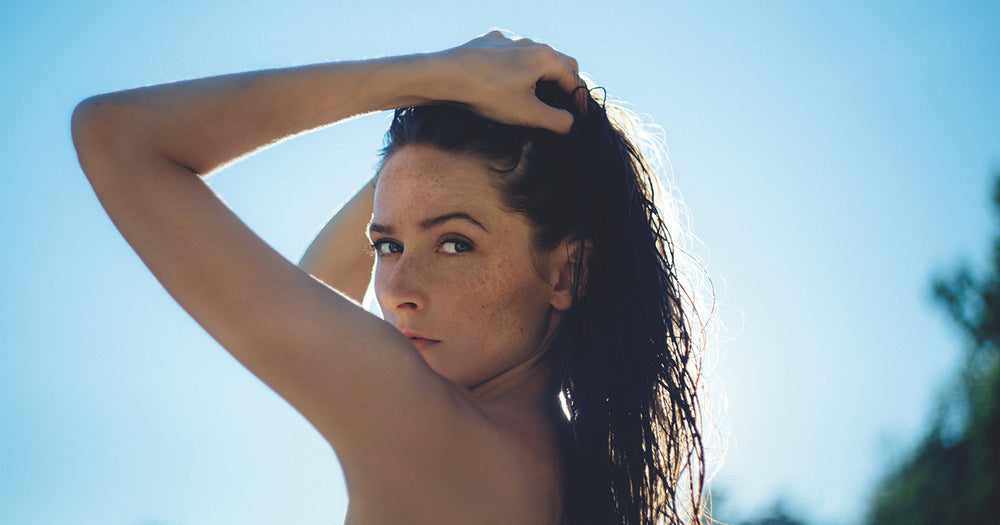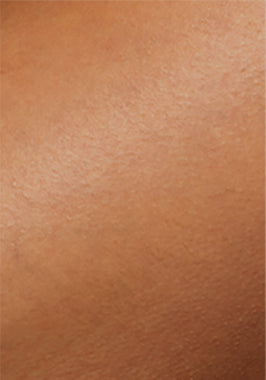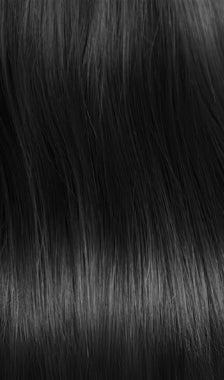Laser hair removal will give you hairless, silky smooth skin for a long time. But once you have had the treatment, you should be careful about exposing yourself to direct sunlight. This is because your skin will become sensitive and prone to sun damage. So if you don't want to suffer any negative effects, you should avoid going out in the sun after laser hair removal.
Below we explain in detail how to expose yourself to the sun and tan before and after laser hair removal, what the sun can do to your skin and, most importantly, what additional measures you can take to protect your skin. So keep reading.

- Part 1: Sunbathing directly after laser hair removal
- Part 2: Direct Sunlight Before vs. After
- Part 3: General Questions
- Part 4: Conclusion
Sunbathing directly after laser hair removal
After laser hair removal, the skin becomes sensitive and needs time to heal. UV rays can damage the skin, so you should avoid going out in the sun for a while. Also, use sunscreen with at least SPF 30 to protect yourself from UVA and UVB rays and wear a hat and long sleeves for a week.
What should you expect?
Because your skin is sensitive after laser hair removal, UV exposure at this time will cause skin damage, including hyperpigmentation, which will cause your skin to become permanently or semi-permanently darker than the rest of your body.
Direct sunlight can also cause your skin to not heal properly and become permanently sensitive. Worse still, direct sunlight can lead to serious skin problems, including skin cancer, so it's best to avoid it.

How long should you avoid the sun?
Protecting your skin from the sun will ensure the best results, so you should avoid the sun for at least two weeks before and after laser hair removal. This is important because the sun makes your skin more sensitive to heat, and using a laser on that skin can cause scarring, burns, and hyperpigmentation.
It is also helpful if you do not laser treatment on sun-exposed areas of the body, such as arms, legs, fingers and toes. This is important because these areas do not usually tan and are therefore regularly exposed to UVB and UVA rays. UVB rays affect the top layer of the skin, while UVA rays penetrate deeper and change these layers.
A safe alternative
Going out in the sun after laser hair removal is generally not a good idea. But there is a slightly safer option in the form of IPL laser technology .
You see, IPL devices keep ultraviolet radiation to a minimum by blocking and controlling the wavelength below 500 nm. These rays also help you fight sun damage. When the skin absorbs them, they turn into heat energy and target specific skin cells, especially those that have been damaged by the sun. This reduces dark spots and sun spots and in some cases even removes them permanently.

So go to a clinic that uses IPL technology, or even better: you can try it with the IPL hair removal devices from Ulike from the comfort of your own home. With these devices, you will definitely get clinic-like results at home.
Yes, you can buy one of their impeccable devices for the price of a laser session. But Ulike's IPL hair removal devices are designed (and certified) to last for years.
Direct Sunlight Before vs. After
Below we discuss in detail what it means to expose yourself to the sun immediately before and after your laser treatment:
Previously
If you are planning to have laser hair removal, you should plan your routine to minimize sun exposure. If you are tanned and are due for treatment, you should look for a professional who can easily penetrate the epidermis and safely remove the hair without affecting the pigmentation of your skin.
For best results, follow the recommended plan and tell your expert that you are tanned:
- Book a 2-week trial patch if you have been exposed to the sun in the last two weeks
- Book a test if you have been exposed to the sun in the last 3-6 weeks and have a tan. The schedule will be postponed for two days during such an event.
- If you go out in the summer, use a broad spectrum sunscreen with a high SPF for a week before treatment. Avoid too much sun exposure if you have a darker skin tone. This will limit the changes in hyperpigmentation and burning.
If you are sunburned, it is best to cancel the treatment. Instead, let your skin heal from the sun damage. This is important because laser hair removal emits powerful energy beams that can penetrate deep into the hair follicles and aggravate your condition.

Afterward
Your skin will be sensitive after treatment and will need weeks to heal properly, so it's best to avoid sunlight altogether, including sunbathing and tanning beds. If you do have to go outside, use sunscreen with SPF 30 and protect yourself from UVA and UVB rays. Also, wear a wide-brimmed hat and long sleeves.
If you have to go outside every day, use sunscreen, especially on areas that are constantly exposed, such as the face and neck. This is important because UVA and UVB rays penetrate the clouds and can affect the skin.
The remedy
Everyone's skin reacts differently to sunlight. Sun exposure after laser hair removal has negative effects, but by taking the following precautions, you can ensure that your skin heals properly and stays healthy (without complications).
Talk to your expert about the treatment and sunbathing before undergoing the treatment, as he will advise you on the best tips for your hair and skin.
sunscreen

Sunscreen will protect you from the sun after laser hair removal. Wear sunscreen and avoid direct sunlight. Sunscreen can help protect you from the sun while healing your skin from the laser rays. Below we will discuss some other benefits of using sunscreen regularly after laser hair removal:
Protects your skin from the sun's ultraviolet rays
Laser hair removal uses high-intensity light beams that target the melanin in your hair. This also affects the surrounding skin, making it more susceptible to sunburn and hyperpigmentation. During this time, your skin may produce too much melanin to compensate for the sun damage, causing dark spots to form in that area. To protect the skin from further damage, you must use sunscreen with SPF 30 daily.
Prevents light damage and avoids skin irritation
Sun protection is an important part of any skincare routine, and it becomes even more important when you have laser hair removal. It protects your sensitive skin from UV rays, which can lead to serious diseases such as skin cancer, premature aging, and sunburn.
Make sure your sunscreen has a high SPF and reapply it frequently, especially when going outside. Even if you use sunscreen, you still need to limit direct sun exposure and wear protective clothing to keep your skin healthy and protected.
Prevents tanning from affecting the results of your laser hair removal
Laser hair removal does not work well on tanned skin because tanning or sunbathing prevents the laser from reaching the hair follicles properly, thus affecting the results. Therefore, even if you have tanned skin, you should still use sunscreen regularly before treatment to ensure the best possible results.
Sun exposure after laser hair removal poses the risk of health problems and compromises the results of laser treatment. Forget silky smooth skin; all you get is sunburnt skin with scarring, hyperpigmentation, rashes and irritation.
General Questions
Below we answer some frequently asked questions about sun exposure and laser hair removal:
What if I have a tan before?
Inform your expert in advance; he will perform a patch test and assess whether you should proceed with the procedure. If it is unsafe, you will have to wait a few weeks.
What if you get sunburned?
Going under laser treatment with sunburned skin only increases the risk of skin irritation, burns and other complications. It's better to give your skin time to heal.
What if you need to travel to a country with a hotter climate?
Apart from the obvious precautions, you should inform your expert beforehand so that he or she can give you an aftercare plan that will help you avoid disruptions and maintain the result.
What should you avoid after laser treatment?
Your skin is vulnerable to infections, so avoid activities that cause illness, including exercise, sauna, hot tub, and swimming in the sea or pool for at least 48 hours.
Conclusion
In summary, it is best to avoid sun exposure after laser hair removal. This way you will protect your sensitive skin and allow it to heal properly. Also, don't forget to wear sunscreen and loose but protective clothing to avoid damage and achieve the best possible result. Last but not least, follow your skin specialist's instructions to keep your skin healthy.




























1 comment
Sandra
Hallo, ich wollte fragen, ob ipl Licht in irgendeiner Form die Haut schädigen kann?
Oft liest man dass ipl sogar gegen falten, Pigmentflecken und besenreiser hilft.
Ist ulike auch in der Lage so auf die Haut zu wirken? Liebe Grüße, Sandra
Hallo, ich wollte fragen, ob ipl Licht in irgendeiner Form die Haut schädigen kann?
Oft liest man dass ipl sogar gegen falten, Pigmentflecken und besenreiser hilft.
Ist ulike auch in der Lage so auf die Haut zu wirken? Liebe Grüße, Sandra